Defense Robotics and Innovation Coalition Helps Tech Council Members Do Business with the Pentagon
By Todd Miller
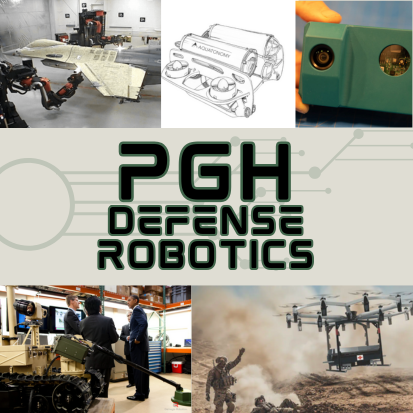 When it comes to connections between Pittsburgh and Washington, DC, the Great Allegheny Passage (GAP) comes to mind immediately. GAP is followed closely by annual contests between both cities’ hockey and baseball teams and quadrennial football games. For the past several years, the Pittsburgh Technology Council has been helping to strengthen connections between Steel City companies and the Nation’s Capital’s defense establishment through the Defense Robotics and Innovation Coalition.
When it comes to connections between Pittsburgh and Washington, DC, the Great Allegheny Passage (GAP) comes to mind immediately. GAP is followed closely by annual contests between both cities’ hockey and baseball teams and quadrennial football games. For the past several years, the Pittsburgh Technology Council has been helping to strengthen connections between Steel City companies and the Nation’s Capital’s defense establishment through the Defense Robotics and Innovation Coalition.
Spearheaded by Brian Kennedy, Senior Vice President for Operations and Government Affairs, the Coalition includes 40 of the Council’s 1,000 member companies. Coalition members provide technologies developed to meet commercial customers’ challenges and have dual uses for military applications.
According to Kennedy, “The Council’s structure is based on successful efforts that are occurring in Austin, TX, and in Ohio and Alabama. With the Department of Defense spending more than $2 billion a year in the Pittsburgh region, mostly at the U.S. Navy Nuclear Lab in West Mifflin for propulsion units used in nuclear submarines, Pittsburgh is a region with a good reputation.”
Activities Galore
Coalition members have met with leadership in the Army Futures Command, the U.S. Air Force, and the U.S. Space Force. Those organizations were so impressed with the talent they found in the region’s companies and universities that they have established or are planning to create operations centers in Pittsburgh.
The Coalition has also hosted engagements with the National Security Innovation Network (NSIN), which seeks to create new communities of innovators to solve national security problems; NavalX, a Department of the Navy initiative that encourages innovation to improve the Navy’s “fleet and force,” including Sailors and Marines; Defense Advanced Research Projects Agency (DARPA), an R&D agency of the U.S Department of Defense (DoD) responsible for the development of emerging technologies for use by the military; the U.S. Army’s Test and Evaluation Command; AFWERX, an R&D agency of DoD?responsible for the development of emerging technologies for use by the military; and the Army Applications Laboratory, which helps to address challenges by leveraging non-traditional industries to get the best technologies in the hands of soldiers faster.?
“The Army Futures Command, the U.S. Air Force, and the U.S. Space Force have already established, or are establishing, permanent operations in Pittsburgh,”?says Kennedy. He also notes that the Coalition spends a lot of time educating elected officials about the region’s strength as an innovation center for DoD. Those efforts have led members of Pennsylvania’s congressional delegation to encourage NavalX and the Defense Innovation Unit (DIU) to establish offices in Pittsburgh and add to the “millions of dollars” that Kennedy says have been generated in business opportunities because of the Coalition’s activities.
DIU strengthens national security by accelerating the adoption of commercial technology throughout the military and bolstering our allied and national security innovation bases.
Reports from the Front Lines
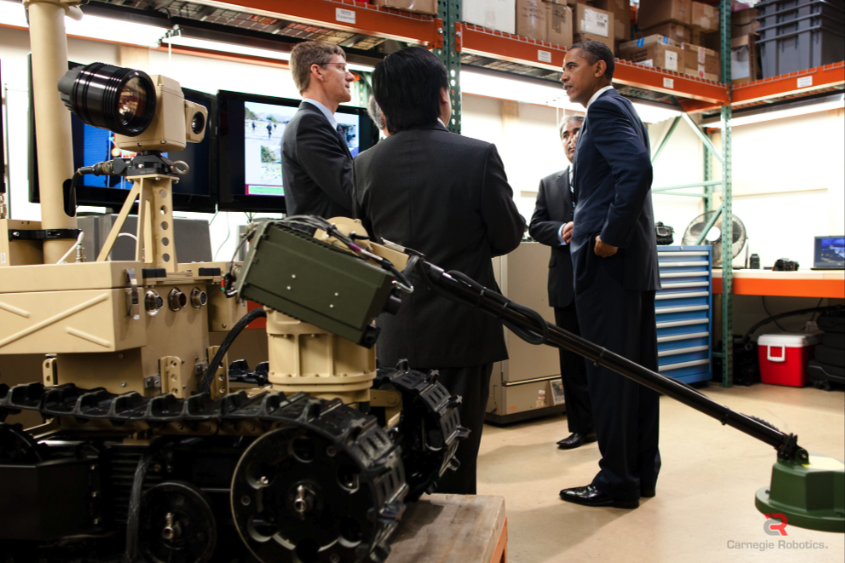 “The Coalition’s leadership has been highly strategic about elevating the profile of Pittsburgh-area companies with DoD,” says Mike Embrescia, Chief Development Officer of Carnegie Robotics, a developer of advanced robotic systems and sensor technology used in autonomous driving systems, 3D imaging, and other solutions that can handle harsh conditions. The company’s work with DoD consists of making land-based products for the Army and Navy, including autonomous driving systems for use in tanks at Camp Roberts, California, where the Army runs training exercises.
“The Coalition’s leadership has been highly strategic about elevating the profile of Pittsburgh-area companies with DoD,” says Mike Embrescia, Chief Development Officer of Carnegie Robotics, a developer of advanced robotic systems and sensor technology used in autonomous driving systems, 3D imaging, and other solutions that can handle harsh conditions. The company’s work with DoD consists of making land-based products for the Army and Navy, including autonomous driving systems for use in tanks at Camp Roberts, California, where the Army runs training exercises.
“Because of the Coalition, we have made inroads with many DoD outfits that are asking to meet with us. We always say ‘yes,” and even if we don’t establish a business relationship from every meeting, there are opportunities to work together over the long term.
“There’s a certain cachet to being in Pittsburgh,” Embrescia continues. “Because, to many people at DoD, Pittsburgh is ‘all things robotic, AI, and tech’ there is a high favorability level.”
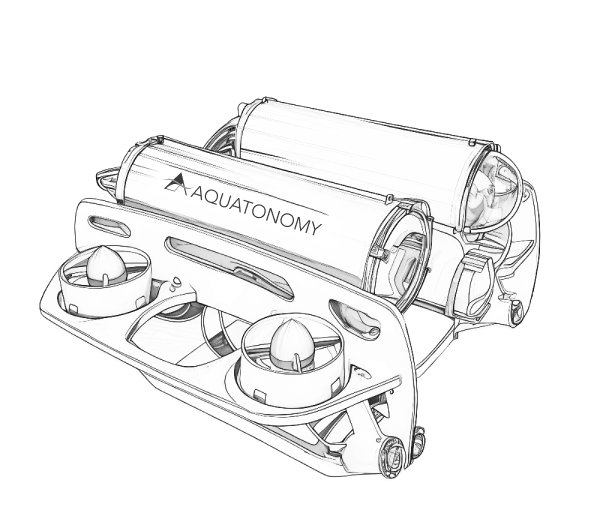 Aquatonomy reports similar successes in working with the Navy and Coast Guard. “Because of the Coalition, we have reached different government sectors that can be potentially supportive of our autonomous underwater robotics designed for complex inspections of submerged structures,” says Xiaoyu Kaess, Co-Founder and Chief Operating Officer of the CMU spinout that won first place in the 2024 Duquesne University New Venture Challenge.
Aquatonomy reports similar successes in working with the Navy and Coast Guard. “Because of the Coalition, we have reached different government sectors that can be potentially supportive of our autonomous underwater robotics designed for complex inspections of submerged structures,” says Xiaoyu Kaess, Co-Founder and Chief Operating Officer of the CMU spinout that won first place in the 2024 Duquesne University New Venture Challenge.
“Being part of the Coalition also helps us get information from government representatives so we can build relationships with strategic partners that can help us meet government needs with dual use technologies,” Kaess continues. She also has found Coalition membership helpful in connecting with other entrepreneurs.
“Participating in Coalition events has given us opportunities for follow-up meetings with people in different government branches,” says Kaess. “They have allowed us to provide information about our company and plant seeds for future client relationships.”
Kaess and her team recently attended a defense and robotics summit that included a large group exercise for obtaining information from DoD with an emphasis on potential projects and brainstorming potential solutions with other entrepreneurs from Pittsburgh and beyond.
“Because there is a sales process [involved with selling to DoD], starting early is necessary.”
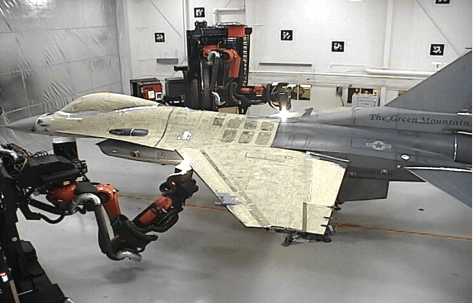 Titan Robotics, another CMU spinout, has also found its membership in the Coalition to be valuable in promoting its flexible and advanced robotic systems for industrial and manufacturing applications, including surface processes, painting, de-painting, sanding, and grinding.
Titan Robotics, another CMU spinout, has also found its membership in the Coalition to be valuable in promoting its flexible and advanced robotic systems for industrial and manufacturing applications, including surface processes, painting, de-painting, sanding, and grinding.
“We have been able to give briefings about our technology to DoD leaders that would not have been possible any other way,” says Thad Magyar, Chief Financial Officer. Those briefings have included showing Army, Navy, and Air Force officials how the company’s technologies work and provide hands-on demonstrations. The coalition has also led discussions with elected officials about advocacy efforts to extend small business innovation resources (SBIR) programs and modify tax laws related to R&D credits.
Going forward, Magyar hopes to continue increasing the company’s visibility with DoD officials and network with contacts to generate business opportunities.
The networking component of Coalition membership has been extremely helpful to Hellbender, which develops AI vision systems for engineering and manufacturing applications. “Federal business is less than ten percent of our revenue and we would like to grow that,” says Brian Beyer, Co-Founder and CEO. Hellbender is a PA Benefit Corporation (B corporation) that receives more favorable tax status compared to a traditional C corporation.
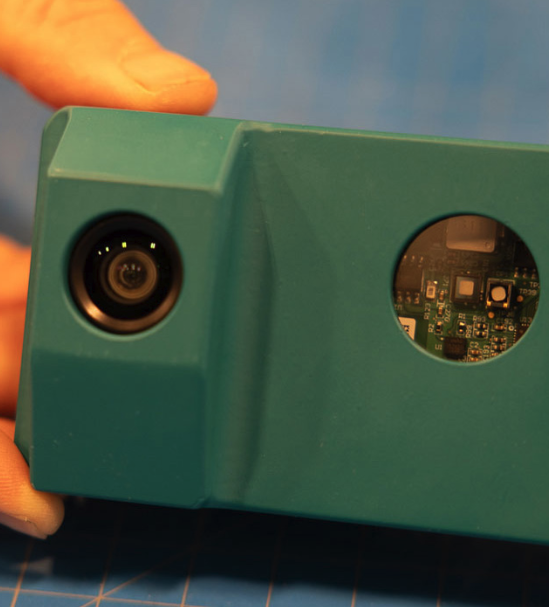 Hellbender received that status because when Beyer co-founded the company in 2021, its stated purpose was to develop dual-use technologies that emphasize mission over profits and to employ military veterans. Twenty-five percent of Hellbender’s workforce is comprised of veterans, which is a high percentage for the tech sector.
Hellbender received that status because when Beyer co-founded the company in 2021, its stated purpose was to develop dual-use technologies that emphasize mission over profits and to employ military veterans. Twenty-five percent of Hellbender’s workforce is comprised of veterans, which is a high percentage for the tech sector.
“Being in the Coalition puts our capabilities in front of key government stakeholders that a company like ours is normally several steps removed from,” adds Beyer. “We have sat down with NavalX’s top people and are routinely in discussions with officials. It’s not enough to read solicitations. Unless you’re attending planning briefings and are well-connected, it’s hard to understand the competition and how you might replace the incumbent.”
Those relationships have led to a sub-contracting relationship with a Tier 1 supplier to a defense contractor that manufactures vision systems and flight control systems for drones and related products for unmanned payloads, ground robotics systems, and smart cameras.
As for the company’s name, it is a reference to the eastern hellbender, which is the official state amphibian of Pennsylvania.? Just as the hellbender requires a clean environment to live, Beyer and his team believe that team members require a healthy work environment so they can thrive.
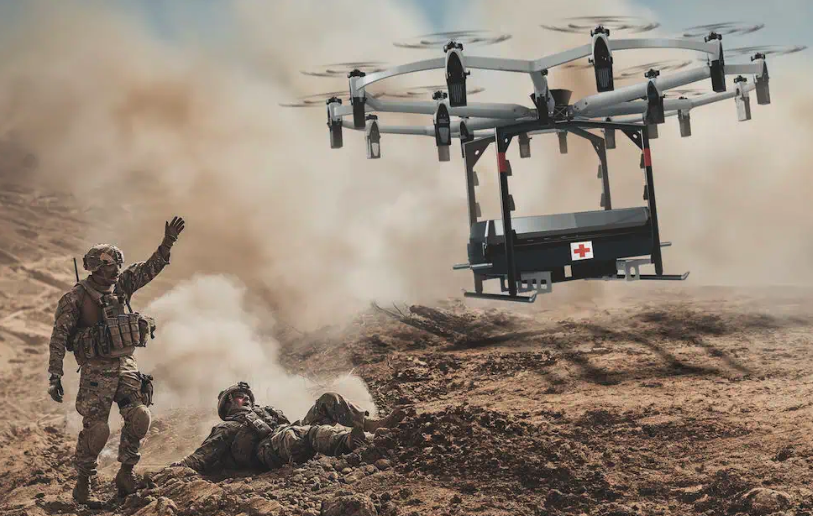 Near Earth Autonomy, which specializes in developing advanced autonomous systems for aerial vehicles such as drones for logistics and inspection applications, has been working with the Army, Navy, Marines, and Air Force since the company began 15 years ago. Nevertheless, Sanjiv Singh, the company’s Co-Founder and CEO, believes there is value in being part of the Coalition.
Near Earth Autonomy, which specializes in developing advanced autonomous systems for aerial vehicles such as drones for logistics and inspection applications, has been working with the Army, Navy, Marines, and Air Force since the company began 15 years ago. Nevertheless, Sanjiv Singh, the company’s Co-Founder and CEO, believes there is value in being part of the Coalition.
“It’s a great way to have people come to Pittsburgh, visit us, and find opportunities to work together and get traction. Interest in drones is growing, and it’s good to meet as many people as possible because the people at DoD are always changing. The Coalition helps us make valuable connections.”
The unmanned aerial vehicles (UAVs) that Near Earth Autonomy manufactures are used to transport supplies such as medicine, fuel, generators, and ammunition to difficult environments. The UAVs are also used to deliver blood over long distances and evacuate casualties. Inspection applications include routine and emergency examinations of C-17 transport aircraft engines, engine mounts, and tails.
“DoD is an early adopter that is willing to start at a lower technology readiness level than a commercial customer,” says Singh. “If the technology is complex, it can take a long time to bring the technology to the commercial market. Because DoD doesn’t take an equity stake in technology companies, it allows companies like ours the flexibility to work hard and show the use case for a given technology and eventually make it available for dual use.”
Connect
The experiences of companies in the Coalition illustrate the fact that to work successfully with DoD, it is necessary to complement what you know with who you know. Those experiences also show that there is strong interest among local tech companies in working with DoD because doing so can be financially and emotionally rewarding. If your company is a member of the Tech Council and would like to join the Coalition, contact Brian Kennedy at bkennedy@pghtech.org.